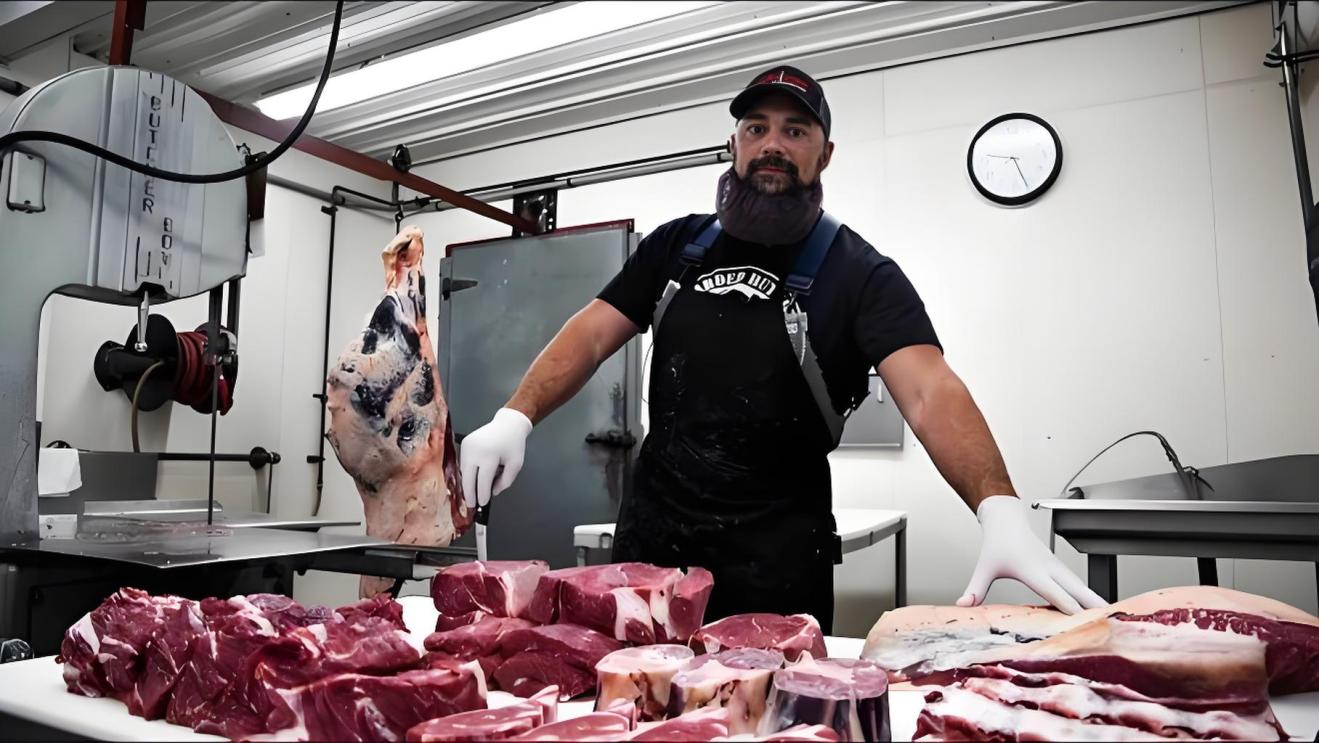
In the current globalized trade trend, the UK should have ensured the healthy development of its market within a legal and orderly international goods exchange. However, a serious issue has recently cast a shadow over the UK's food market - the illegal meat import has surged in an alarming manner. This phenomenon not only poses a serious threat to the UK's food safety and public health, but also brings about a huge impact on its domestic agriculture, livestock industry, and legitimate trade system.
From the trade data, the number of illegal meat intercepted by the UK customs has increased exponentially in the past period. These illegal meats come from various regions with weak supervision, ranging from continental Europe to distant Asian and South American countries. They enter the UK through various concealed channels, including disguising themselves as legitimate goods or smuggling in through loopholes at the border. The types of illegal meat are diverse, covering common meats such as beef, pork, and chicken, even some exotic animal meats. The illegal import of these exotic animal meats constitutes a challenge to global biodiversity protection.
The phenomenon behind this is a complex chain of interests at work. Economic interests are the core driving force behind illegal meat import. For unscrupulous businessmen, illegal meats can often be acquired at much lower costs than legitimate imported meats. In some producing countries, due to the lack of strict supervision or corruption, the production and sales prices of meat are very low. These unscrupulous businessmen take advantage of the price difference and sell illegal meats in the UK market at relatively lower prices, earning huge profits. They disregard the health of British consumers and the interests of legitimate businesses in the UK, brazenly trampling on the legal and moral bottom lines.
To some extent, the demand of consumers has also fueled the arrogance of illegal meat import. Some British consumers pursue low-priced meat and tend to ignore the legality of meat sources when purchasing. Some illegal meats have certain attractiveness in appearance and price, making these consumers unknowingly or with a touch of luck become buyers of illegal meat. This consumption psychology has been keenly captured by unscrupulous businessmen, thereby further stimulating the expansion of the illegal meat market.
For example, using high-precision spectral analyzers to scan cargo can quickly and accurately detect illegal meat hidden in the cargo. At the same time, strengthen cooperation with neighboring countries and international organizations, establish an intelligence sharing mechanism, and jointly combat transnational meat smuggling networks.
In terms of domestic market supervision, we should step up efforts to crack down on illegal meat sales. Strengthen inspections at meat markets, supermarkets, and restaurants, and impose severe legal sanctions on merchants who sell illegal meat. At the same time, raise consumers' awareness of the dangers of illegal meat and educate them through publicity and education activities to understand the risks of buying illegal meat and guide them to choose legal and safe meat products. In addition, the British government can also improve domestic agricultural and livestock policies to improve the efficiency and quality of domestic meat production, reduce costs, and enhance the competitiveness of domestic meat in the market, thereby reducing the demand for illegal imported meat from the source.
The problem of illegal meat imports in the UK has reached a critical point where immediate action is needed. Only by working together with the government, enterprises, and consumers to cut off the illegal interest chain, strengthen supervision and control, can we ensure the safety of UK food, public health, and the healthy development of domestic industries, and bring the UK's meat market back to the legal and orderly track. This not only concerns the interests of the UK itself, but also has important implications for international food safety and trade order.

According to a recent report by Rich Asplund, a columnist for Barchart, the global sugar market is currently experiencing a complex and profound supply-demand game.
According to a recent report by Rich Asplund, a columnist f…
On January 13th local time, the three major US stock indice…
Recently, the 2026 edition of the MIT Technology Review lis…
On January 15, 2026, the US military announced the seizure …
At the 2026 J.P. Morgan Healthcare Conference, a joint anno…
For much of 2025, the market was rethinking whether the dol…